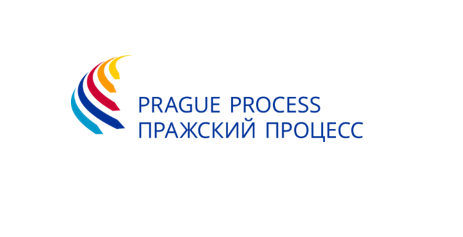Over the past months, the Prague Process activities have largely focused on preparing the 4th Ministerial Conference, scheduled for 24-25 October 2022 as an official event of the Czech EU Presidency. The Conference shall result in the adoption of a new Action Plan and political mandate for the years 2023-2027.
Three intergovernmental consultations addressing the six thematic areas of the Prague Process took place in May and June 2021 in order to collect participating states’ inputs to the current Action Plan provisions and update them accordingly. While confirming the overall validity of the thematic priorities and concrete actions featured in the current Action Plan, participating states also expressed additional ideas arising from the recent migratory dynamics and anticipated future needs.
The gathered inputs allowed preparing first drafts of the new Action Plan and Ministerial Declaration, both of which will be further debated at the upcoming Senior Officials’ Meeting on 22 November.
The Prague Process Webinar series, launched in response to the COVID-19 outbreak, has turned into a good practice welcomed by participating states and a wider audience. The two latest webinars addressed the role of media in shaping migration discourses and the impact of demographic changes on migration in the region.
The webinar ‘Reporting Migration: the role of media in shaping public opinion and policies on migration’, featuring Mr Adalbert Jahnz (European Commission Spokesperson for migration, home affairs and citizenship), Mr Robert McNeil (Deputy Director, Migration Observatory at the University of Oxford), and Mr Tom Law (Media Policy Adviser, Global Forum for Media Development), assessed the impact of media reporting on migration while also introducing the Handbook on “Reporting Migration”. Meanwhile, the webinar ‘Demography and migration in the Prague Process region’ with Prof. Ronald Skeldon (University of Sussex and Maastricht University) shed some light on the ongoing decline of human populations and its linkages to migration, both internal and international. Flagging the overall demographic trends across the Prague Process countries, it identified differences amongst them and highlighted pertinent policy issues, particularly in terms of migration policies.
September 2021 saw the official launch of the Prague Process E-learning Platform developed within the Prague Process Training Academy. The Platform provides educational material for independent, self-paced remote learning in English and Russian. It aims to provide the migration authorities of the Prague Process states with a flexible and user-friendly tool to enhance vocational training among their staff. At present, the Platform hosts three courses - on Labour migration, Identification and Profiling at the Border and on Integrated Border Management (IBM).
The intermediate-level Online Training on Return and Reintegration held in October covered all stages of the return process with an idea to build the knowledge and strengthen the capacities of state actors on this topic. Participants gained insights into multi-level collaboration, important aspects of the day-to-day work of return advisors, existing policies and challenges. The training featured real examples on the subject matter, interactive tests and the possibility to ask questions.
A Study visit on behalf of representatives of the Council for Migration, Compatriots and Diasporas abroad under the Parliament of the Kyrgyz Republic to Austria took place in early September. The visit included meetings with ICMPD, the Austrian Federal Ministry of the Interior and the Joint Cooperation Platform under the Ministry. The visits allowed assessing the work of these institutions in the areas of migration, asylum and borders and could help Kyrgyzstan to prepare for a possible migrant influx amid the deteriorating situation in Afghanistan.
Finally, the Prague Process Migration Observatory released three interesting publications - the book ‘Migration Observatory: Selected Publications 2019-2020’, a Policy brief about the changing demographics in the countries of the Prague Process and another Brief about the implications for migration of the situation in Afghanistan on the Central Asian countries. Featuring on the Prague Process Interactive map, the newly updated country factsheets for Armenia, Albania, Azerbaijan, Kazakhstan, Kyrgyzstan, Tajikistan, and Turkmenistan provide concise but comprehensive overview of the situation in each country.

